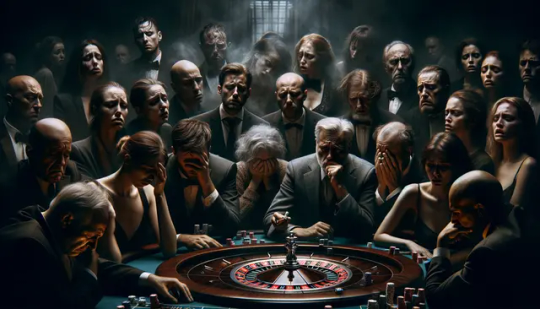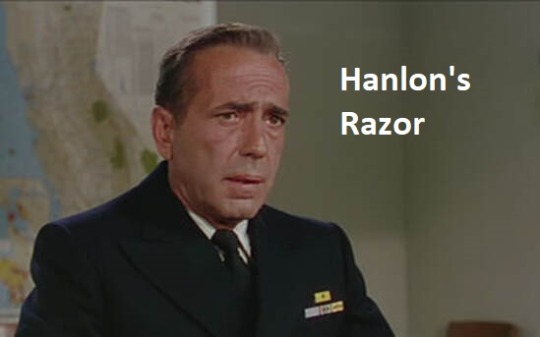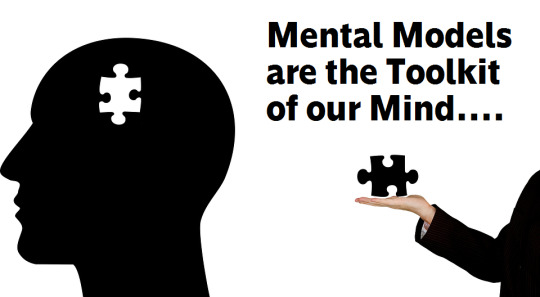#Mental Models
Explore tagged Tumblr posts
Text
Is everything marketing?
The more I browse the web, the more I feel like everything has become a subgenre of marketing.
Wasn't marketing just a function of business? Why does it seem like everything must be infused with marketing if it wants to exist?
It’s like marketing your whatever has become more important than whatever it is you’re marketing.
Even worse: some things only exist in marketing but have no body beyond its representation.
This might just be a theatric effect of social media blasting advertisement-soaked content into our faces 24/7.
Even though it feels like online marketing is rather ephemeral, it wouldn’t be fair to say it’s all thin air.
There are all kinds of schemes and scams from multilevel marketing to bullshit coaching but it’s not like every online business falls into one of these schemes.
These scams are, however, the absolute low point of marketing: empty business models that sell no real product, just manipulative communications exploiting the feelings of greed and need of vulnerable people.
The problem I see is not that scams exist but that anything that doesn't do marketing falls into obscurity because there is such a fierce battle for visibility out there.
If you’re not visible on the internet, you don’t exist.
Thus, anyone who wants to be seen must engage in marketing to ascend from the shadows.
I guess that wouldn’t feel so bizarre if I thought of it as just „communicating or connecting with the world“ rather than „marketing yourself.“
Self-marketing is essentially the same thing framed in a business perspective: you create a supply of yourself on the attention market by shouting louder and more often, hoping to attract and bind people with the things you say, creating a demand for yourself.
It’s appalling for me to think this way.
The imperative to be loud, visible, and consistent runs counter to my introverted nature.
Yet I am attentive because it seems that if you ever want to be free by running your own business, you have to play in the theatre of the attention economy.
Maybe I can help myself by reframing this marketing as connecting with the world and those in it who care.
After all, we speak to emotions or reason or morals and someone out there has the ones that resonate.
Everything is connection, communication, correspondence. Making it marketing is a choice - one that I don’t have to make, but I might.
#thoughts#spilled thoughts#marketing#digital media#internet#self help#self growth#creative support#mental models
2 notes
·
View notes
Text
Gatekeeping writing tools is over.
See the full list of tools and guides here: https://free.loreteller.com
#writers#worldbuilders#plotters#writing tips#mental models#narrative psychology#litrpg#map making#writers block
2 notes
·
View notes
Text

This is a friendly reminder that none disabled people often do benefit from the same accommodations disabled people benefit from.
#mobility issues#leftism#mental illness#autism#medical model#mobility aid#social model of disability
68K notes
·
View notes
Text
''Software engineers have an unfair advantage in the age of artificial intelligence, not because of their coding knowledge, but because they know that before you try to solve any problem, you need to thoroughly describe it and break it down.
Most people are monkeys throwing random darts at the issue until one of them hits it by chance. ''
0 notes
Text
Empowering Smarter Decisions (11/11).
Sanjay Kumar Mohindroo Sanjay Kumar Mohindroo. skm.stayingalive.in Discover these essential mental models to sharpen your decision-making. Unlock better thinking and avoid common pitfalls with these must-know tools. The Map Is Not the Territory: Don’t Confuse Reality with Perception
Our perception of reality is always a simplified version, like a map compared to the actual terrain. Maps help…
#Circle of Competence#Decision-Making Tools#First Principles Thinking#Hanlon&039;s Razor#Map Is Not the Territory#Mental Models#News#Occam&039;s Razor#Probabilistic Thinking#Problem-Solving Techniques#Sanjay K Mohindroo#Sanjay Kumar Mohindroo#Sanjay Mohindroo#Second-Order Thinking#Thought Experiments
0 notes
Text
9 Mental Models for Thinking Like A Genius
Mental models are cognitive frameworks that help us interpret and navigate the world around us. They are internal representations shaped by our experiences and beliefs, allowing us to simplify reality and make decisions more effectively. By drawing on the
Introduction Understanding the myriad elements that influence our lives can feel overwhelming in our complex world. That is where mental models come into play. These simplified representations help us make sense of reality and tackle difficult problems with greater clarity. Key Ideas Mental models simplify complex concepts. Each individual has a unique circle of competence. Understanding the…
#decision-making#decision-making tips#how to use mental models effectively#making smart decisions#mental models#original content#self-development#success#tips and tricks#understanding mental models in decision-making
0 notes
Text
9 Highly Useful Frameworks for Life!
Everyone would have heard the essence of these frameworks many times, but I purposefully call them frameworks here because I urge you to make it so. Framework, mindset, algorithm, whatever you call it, deliberately install them into your life and see the miracles they can do to your life. It has done so to my life, I wish you the best and share these hoping it does to your life too! Awareness is…
0 notes
Text
Mental Shortcuts
The universe is complex -- really too complex for us to contemplate or interact with it while fully aware of everything that is going on, and how, and why. In order to function within this complex system, we create mental shortcuts, models, and frameworks that section off and simplify pieces of the world we exist in. These models are often as basic as cause and effect rules - if I put this kettle of water on a hot stove, the water will heat up - or they can be more complex and detailed - like scientific Theories.
No matter how detailed or specific these models are, though, what we have to remember is that they are just that - models. Mental shortcuts that help us explain how the universe works and anticipate outcomes. They are not, in fact, how the universe works. When we think or talk about the universe, what we're really talking about is one or more of those mental models, not the universe itself.
One of the most simplistic shortcuts that we make are binaries - good/bad, hot/cold, here/there, inner/outer, etc. With a little thought though, it is easy to see that in a complex system there can functionally be no simple binaries like those, as they all require context. I think this (and the fact that it is easier to memorize and recite) is why scriptures often have lists of "X is not Y, it also isn't not Y" statements. Vīmalakīrtī does this quite a bit. One exception is the start of Chapter 12:
The Tathāgatha does not arise from the four elements and is the same as emptiness. The Tathāgatha is not the aggregation of the six sense faculties, and is beyond the eyes, ears, nose, tongue, body, and mind.
Which is to say, the Buddha can't be pinned in to one system - the Tathāgatha is empty of dependent characteristics, i.e., the four elements, which is to say that the Buddha is the same as emptiness.
Additionally, you can't try to understand, usually phrased as 'contemplate', the Buddha by using the typical inputs we normally use to understand the world - eyes, ears, nose, tongue, body, or mind. Those senses are not designed to contemplate emptiness.
The Tathāgatha is not a single characteristic, or diverse characteristics, has no notion of self or notion of others, is not free of characteristics or attached to characteristics.
No matter how complex of a model we try to devise, it will only ever be just that - a model. Because the Tathāgatha is teaching us about the the universe, not just giving us another framework to think about the universe, we have to try to let go of all the mental shortcuts we hang on to in everyday life to begin to really contemplate those teachings.
0 notes
Text
[Deliberate 108] Avoid negative-sum games
Winning wealth and happiness takes effort, skill, and luck. But there is a shortcut: deciding which games to play - and what is even easier - deciding which ones not to play. Negative-sum games are particularly easy to spot and always toxic.
Winning wealth and happiness takes effort, skill, and luck. But there is a shortcut: deciding which games to play – and what is even easier – deciding which ones not to play. Negative-sum games are particularly easy to spot and always toxic. People (especially competitive ones) tend to put a lot of effort, preparation, and attention into winning real-life games: getting that promotion, getting a…

View On WordPress
0 notes
Text
Once upon a time..
Why do similar stories exist all over the world in totally different cultures? How does our relationship with narrative affect our experience of reality. (3 short chapters based on the work of historian Dr. Julien d'Huy)
https://whoweare.elementor.cloud/en/contents/2/

#belief#narrative#myth#mythology#folklore#identity#dialogue#cosmogonie#julien d'huy#cognitive bias#communication#history#anthropology#culture#mental models
0 notes
Text
Are you overcomplicating your own life?
Imagine your phone is running quite slow all of a sudden. You open Instagram and it takes 5 seconds for it to open, 7 seconds for Whatsapp and god forbid 8-10 seconds for Gmail app to open. What are your first thoughts as to why this might be happening? Virus? Hackers? Webcam compromised, financial details leaked? What will you do now? Will they empty all your savings that you took 5 years…

View On WordPress
0 notes
Text
''We are a shortsighted species. We think only one step ahead in terms of consequences, and then we typically only limit it to our own consequences. We need to engage in second-order thinking and visualize all the dominos that could be falling. Without this, it can’t be said that you are making a well-informed decision.''
-Peter Hollins, Mental Models
1 note
·
View note
Text

Don't ascribe to malevolence what can easily be explained by incompetence...or as the ancients used to say..."all evil is based on ignorance"
It is better to be on your own way than think the entire world is against you...
It is a dangerous thing to ascribe to others, especially strangers, any level of motivation.
0 notes
Text
Expanding Inputs for Expansive Outputs
Hi All,
Here’s my daily newsletter navigating the crossroads of business, growth, and life.
If you love this content (please share it), but also…
Check out my Podcast, connect with me on YouTube / Twitter, Subscribe to my weekly newsletter and Join our free slack community
---
Leonardo da Vinci didn't just paint. He wasn't just an engineer. He was a renaissance man in the truest sense.
But what does a 15th-century polymath have to do with today's entrepreneurial landscape?
Everything.
Leonardo didn’t just absorb facts. He collected puzzle pieces.
Art. Engineering. Anatomy. Astronomy. Botany. Geology.
Each, a different domain. Each, a piece of the puzzle. Together, they formed masterpieces like the Mona Lisa or the Vitruvian Man.
In our hyper-specialized world, this might seem counterintuitive.
We are often told: "Focus on one thing. Be the best at it."
But here's a thought: What if expanding our inputs is the key to expanding our impact?
Think about a puzzle. With more pieces, the picture gets more complex, more intricate, more fascinating.
That’s how creativity works.
It’s not a limited resource. It’s not just a series of facts. It's an ecosystem of ideas, experiences, and knowledge.
When we silo ourselves, we limit our pieces. When we broaden our horizons, we collect more.
A tech entrepreneur understanding behavioral psychology. A marketer delving into data science. An artist exploring technology.
Unexpected combinations. Unanticipated solutions.
Steve Jobs once said, "Creativity is just connecting things."
He connected calligraphy with computing. The result? The Mac's revolutionary typography.
So, here’s the modern-day challenge:
Don't just be a specialist. Be a polymath in training.
Collect puzzle pieces from everywhere. A book on philosophy. A course in coding. A podcast on ancient history.
You might find that the solution to a complex problem lies in the knowledge gleaned from a seemingly unrelated field.
And remember, it’s not just about hoarding these pieces. It's about seeing the connections, making the links.
Leonardo da Vinci didn't just accumulate knowledge; He wove it together into a tapestry of brilliance.
That’s your task.
Expand your inputs. Interconnect your knowledge. Watch as your outputs — your ideas, your solutions, your impact — grow exponentially.
Be like da Vinci. Your Mona Lisa awaits.
0 notes
Text
Mental Models from Multiple Disciplines
Mental models are deeply ingrained assumptions, generalizations, or even pictures of images that influence how we understand the world and how we take action. – Peter Senge Mental models are the ways of understanding the world around us. We have to make sense of things happening. Some are simple to understand but many are complex to comprehend. Hence, we need to visualize and picturized. We do…

View On WordPress
0 notes
